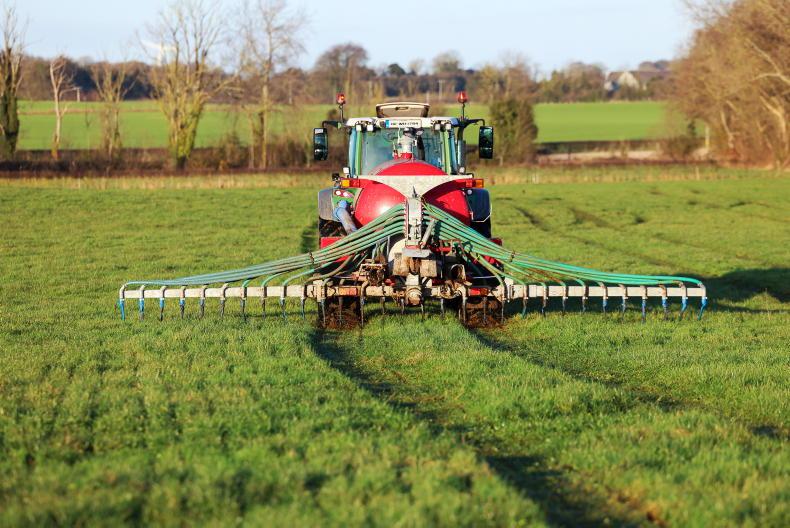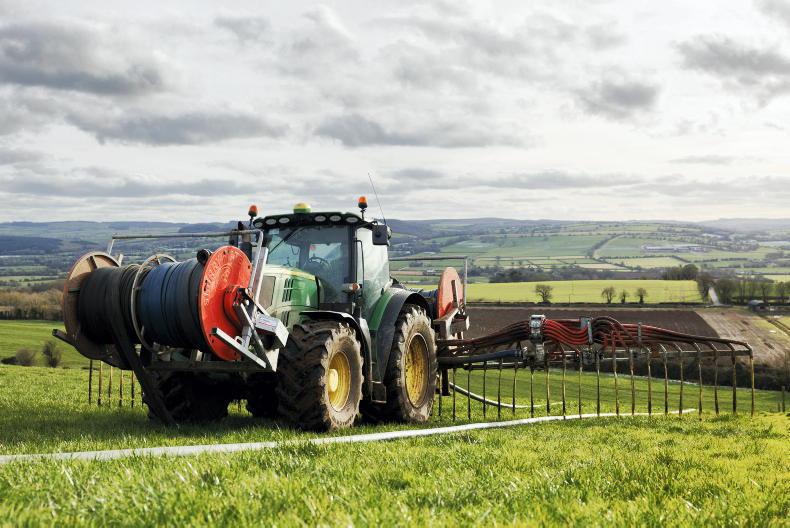Farmers will face fines of up to €5,000 for failing to comply with the conditions that are to be set out with the establishment of the national fertiliser database from January 2023.
Once passed by Government, the bill will establish two fertiliser registers – one for farmer users of chemical fertilisers and another consisting of all other agents who handle product along the fertiliser supply chain.
Together, these registers are to form the national database which will be used by the Department of Agriculture to track fertiliser movements and compliance with environmental schemes and the nitrates directive.
All farmers who use chemical fertilisers will be required to apply for entry to the register and all fertiliser stocks on farms in January 2023 must be reported.
Farmers will also have to report closing on-farm fertiliser stocks yearly after the closed period begins, to allow the Department to calculate usage over each growing season.
An end user identification registration number will be provided to farmers after entry is granted to the register and this number must be provided to fertiliser merchants at the point of sale, along with details including the quantity bought.
Failure to provide this number when purchasing fertiliser could leave farmers liable to fines of up to €5,000, the draft of the bill which will establish the register states.
Merchants and importers
Another register of all those who import, manufacture or sell chemical fertiliser in the State is also to be established to complete the database.
Anyone who undertakes such activities without being listed on this register could face a fine of up to €5,000 if convicted under a summary offence, with this fine raised to as much as €100,000 if convicted on indictment.
The regulation will allow authorised officers, along with An Garda Síochána, to instruct a vehicle to be stopped for the purpose of a search where there is grounds to believe an offence is being or has been committed in breach of the regulations. Authorised officers will also be granted powers to inspect any land or premises on which they have reasonable grounds for believing any fertiliser is being stored.










SHARING OPTIONS